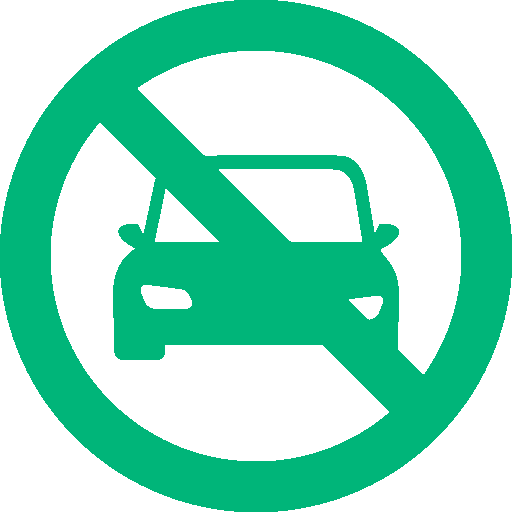Offences
-

Dangerous Driving
Section 2 Road Traffic Act 1988 Dangerous Driving Offences are one of the most serious road traffic offences, attracting punishments of mandatory disqualification for a minimum period of 12 months, a fine and the requirement to re-sit the extended driving test. A person, therefore, remains disqualified until they re-sit the appropriate driving test. Longer periods…
-

Failing to Stop & Report
Section 170, Road Traffic Act 1988 Any driver involved in a road traffic accident must stop and provide their details. If a driver does not comply with this requirement he must report the accident to the police as soon as reasonably practicable and, in any case, within 24 hours of the accident. Accordingly, two separate…
-

Careless Driving
Section 3 Road Traffic Act 1988 Careless Driving arises where a person drives “without due care and attention” or “without reasonable consideration for other road users”. This is an area which has generated a great deal of case law and just about every driver has, at one time or another, driven without due care and…
-

Failure to Provide Driver Details
Section 172, Road Traffic Act 1988 The law provides the police with wide powers to ascertain the identity of the person driving a vehicle at the time of any alleged motoring offence. Frequently referred to as the “172 Requirement” the police can require the registered keeper of a vehicle to identify the driver of the…
-

Speeding Offences
Road Traffic Regulation Act 1984 It is an offence to exceed the speed limit that applies to a particular class of road. In practice, however, it is unlikely that a driver will face prosecution if he has exceeded the speed limit by just a few miles per hour. It is not a defence that you…
-

Notice of Intended Prosecution (NIP)
Section 1, Road Traffic Offenders Act 1988 For certain road traffic offences the driver must be given a warning that he faces prosecution. This is done by issuing a Notice of Intended Prosecution (NIP). Common offences requiring a NIP include: dangerous driving, careless driving, speeding and disobeying traffic signs and traffic signals. The NIP can…
-

Mobile Phone
Using a Mobile Phone while Driving – Section 41D Road Traffic Act 1988 The main law governing mobile phone use while driving in Scotland is Regulation 110 of the Road Vehicles (Construction and Use) Regulations 1986, as amended by the Road Traffic Act 1988 and further clarified by the Mobile Phone Offences (Penalty) (Amendment) Regulations 2017. This law prohibits using…
-

Driving whilst Disqualified
Section 103(1)(b), Road Traffic Act 1988 The offence is committed in any circumstances where a person drives any motor vehicle during a period of disqualification imposed on him by a court. Only a court of law can impose a period of disqualification. Disqualification takes effect immediately from the moment it is imposed by the court. …
-

Driving without Insurance
Section 143, Road Traffic Act 1988 It is an offence to use a motor vehicle on a road or public place, such as a car park, without insurance coverage. To be charged with this offence it is not necessary that the motor vehicle was being driven. If it is parked on a road or other…
-

Removal of Disqualification
Section 42, Road Traffic Offenders Act 1988 If a period of disqualification has been imposed an application can be made for early removal of the disqualification. The application is also known as a Petition for the restoration of a driving licence. The application must be made to the court that imposed the period of disqualification…
-

Drink Driving
Section 5(1)(a) Road Traffic Act 1988 A person is guilty of an offence of drink driving if he drives or attempts to drive a motor vehicle on a road or public place when the proportion of alcohol in his breath, blood or urine exceeds the prescribed limit. Attempting to drive covers situations where there is…
-

Penalty Points & Totting-Up
Sections 28 & 35 Road Traffic Offenders Act 1988 Penalty points can be endorsed on your licence for a variety of offences. The actual number of points that may be endorsed on your driving licence will depend on the type and gravity of the offence in question. For serious contraventions penalty points can be substituted…
-

Failing to Provide Specimens
Sections 6(6) & 7(6), Road Traffic Act 1988 Failing or refusing to provide a specimen of breath, blood or urine when required to do so by the police and, without reasonable excuse, is an offence. There are two separate offences that arise under this area of the law and different penalties apply: Failure to Cooperate…
-

Exceptional Hardship
Section 35(4)(b) Road Traffic Offenders Act 1988 If a driver accumulates 12 or more penalty points within a 3 year period he becomes a “totter” and must be disqualified for at least 6 months under the “totting-up” provisions. However, disqualification can be avoided if the driver can prove that the loss of his licence will…
-

Drunk in Charge
Section 5(1)(b), Road Traffic Act 1988 It is an offence to be “in charge” of a motor vehicle while over the legal alcohol limit. For a conviction under this section it is not necessary for the prosecution to prove that you were driving or attempting to drive. Rather, this offence can be committed where the…
-

Special Reasons
Section 34(1) Road Traffic Offenders Act 1988 Where a driver is convicted or simply accepts that he is guilty of an offence he may be able to establish that there are Special Reasons why penalty points should not be endorsed on his licence. The same principle applies to offences that attract discretionary and mandatory periods…
-

Drug Driving
Section 4, Road Traffic Act 1988 It is an offence to drive or attempt to drive a motor vehicle whilst unfit through drugs. A person is unfit if their ability to drive is impaired as a consequence of taking drugs. The impairment can be brought about from use of illegal drugs, legal highs and even…
-

New Drivers
The Road Traffic (New Drivers) Act 1995 All new drivers are subject to a probationary period of 2 years from the date that they pass their full driving test. Revocation of Driving Licence The main effect of the law in this area is to impose a probationary period of 2 years after the full driving…
-

Traffic Lights
Section 36(1) Road Traffic Act 1988 Running a red light or failing to comply with any other road traffic sign, including road markings is an offence. These offences are usually dealt with by fixed penalty. If a fixed penalty is not issued by the police or, if it is refused by the driver, then any…
-

Vehicle Defects
Sections 40A to 42 Road Traffic Act 1988 Using a motor vehicle that is defective in some way can amount to an offence under the Construction & Use Regulations. This vast area of the law sets the standards that must be met in relation to the construction, maintenance and use of all motor vehicles. In…
-

HGV Drivers & Operators
As a HGV Driver or Operator we appreciate that your licence is essential to your livelihood. We also appreciate that HGV drivers are at far greater risk of being stopped by the police or other regulatory bodies, such as VOSA. The consequences can be far reaching. HGV Legislation & Regulation Over and above the road…